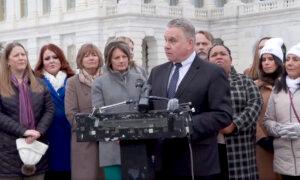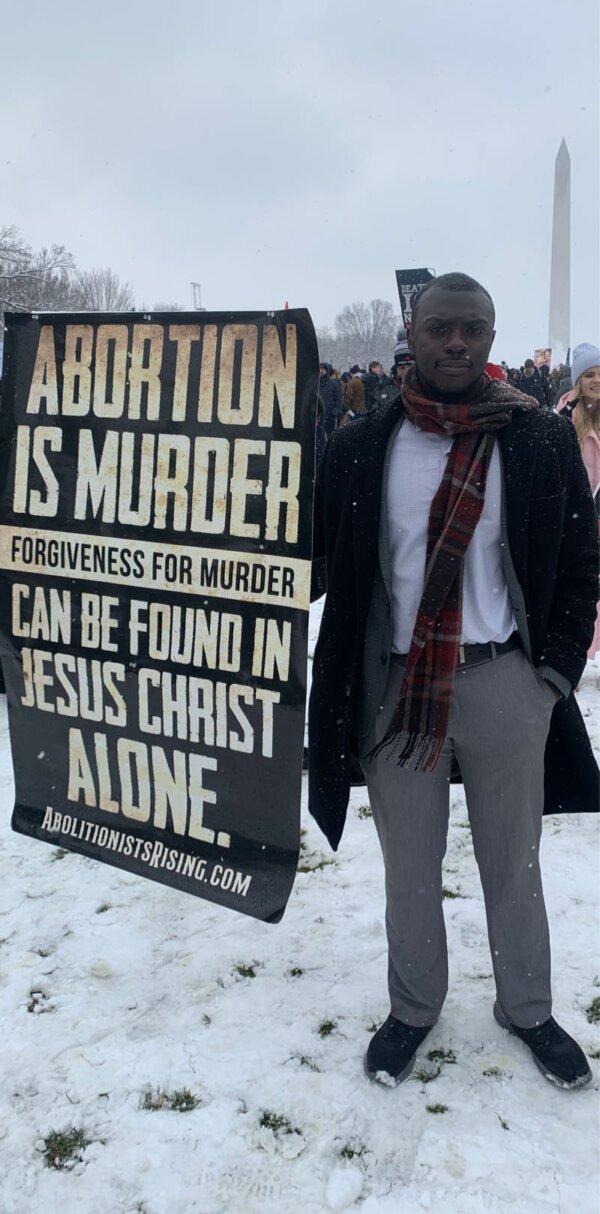The pro-life movement faces new challenges as allies disagree over tactics in a post-Roe world.
WASHINGTON—Thousands of pro-lifers gathered in Washington on Jan. 19 to “stand for the unborn” as the March for Life movement celebrated the end of Roe v. Wade while confronting multiple losses at the state level.
Currently in its 51st year, the march coincided with the Jan. 22 anniversary of the Supreme Court’s decision in Roe, which, along with Planned Parenthood v. Casey, limited how much state legislatures could restrict abortion.
On June 24, 2022, in Dobbs v. Jackson Women’s Health Organization, the Supreme Court returned the authority to regulate abortion to the states, where both sides of the debate have pushed for legislative and constitutional changes in recent years. That transfer of authority hasn’t changed the destination of the march, however, which has proceeded for years along the southern part of DC and up to the Supreme Court.
“We have a long way to go until life is truly protected by our nation, but the witness each year at the National march gives me great hope,” March for Life President Jeanne Mancini said in a press release. “Though legislation protecting life remains critical, even more important is the work of changing hearts and minds. That’s why we will continue marching at the state and federal level until our nation’s laws reflect the basic truth that all human life is created equal and is worthy of protection.”
“It’s honestly disheartening to see how our culture, and the government especially, is so opposed to pro-life policies and, you know, just disregard for the unborn totally,” Lucie Lee, a 20-year-old art school student told The Epoch Times.
“And, especially being in New York City … most of the people around me like in my school are adamantly and very aggressively pro-choice.” Ms. Lee held up a sign depicting an unborn child and asking “Why Don’t You See the Life in Them?”

Ms. Lee is one of the many students across the country who work with Students for Life of America (SFLA) to change minds on abortion. She said she participates in “tabling,” or going to schools and engaging with students on the issue.
“It’s a shame that there are so many organizations that are supporting abortion for monetary gain, and for them to decide who should live and who should die,” Mr. Koski told The Epoch Times.
“I think that’s something that God should decide. I don’t think it’s something that we should take into our own hands.”
Mr. Koski’s opinion differed radically from groups like Planned Parenthood, who insist that choosing abortion is a fundamental right.

On the day before the March for Life, Planned Parenthood was promoting the pro-choice Women’s March scheduled for Jan. 20.
Compromise and the Debate Over Incrementalism
Polling has historically shown that many Americans don’t wholly support the beliefs of either side of the abortion debate. Most have reported favoring some, but not all, limits on abortion—usually after the first trimester.
Leaders and activists on both sides tend to frame the issue in more absolute terms with some expressing openness to an incremental approach to changing laws.
Both Ms. Lee and 33-year-old Giovanni Abreu told The Epoch Times that they favored a complete ban on abortion.
Liberty University student Samuel Johnson, 24, said it should only be permitted in cases of medical emergency.
“God is the author of life and death,” Mr. Johnson said.
Samuel Johnson, 24, participates in the 51st annual March for Life (Sam Dorman/The Epoch Times).For pro-life leaders, the post-Roe political landscape has forced them to balance their concerns about unborn children with caution over attempting to change state laws too much, too quickly.
SFLA President Kristan Hawkins, former Americans United for Life President Catherine Glenn Foster, and Susan B. Anthony List Director of State Public Affairs Kelsey Pritchard are open to a more incremental approach, they told The Epoch Times.
“We exist to save as many lives as we can, as fast as we can, and we do that by recognizing the political reality that exists and creating strategies that are reflective of those realities,” said Ms. Pritchard.
She added that her organization expected “up to 10 ballot measure fights in pro-life states in 2024. If we lost them all, that could mean the loss of protections for nearly 30,000 babies annually.”
Ms. Hawkins said that while she would like to abolish abortion, she didn’t think that would happen “in the next couple of years.” She also pushed back on the idea that pro-lifers should appeal more to moderates.
“I don’t think Planned Parenthood’s appealing to moderates,” she said, clarifying that she thought they lied to do so.
Ms. Hawkins argued that President Trump was “tragically naive if he thinks his deal-making ability is going to extend to getting Planned Parenthood to compromise on anything .”
“I don’t really think you can make Satan happy at this point … He’s already happy with the Joe Biden administration now but that’s pretty much all that Satan wants is more child sacrifice.”
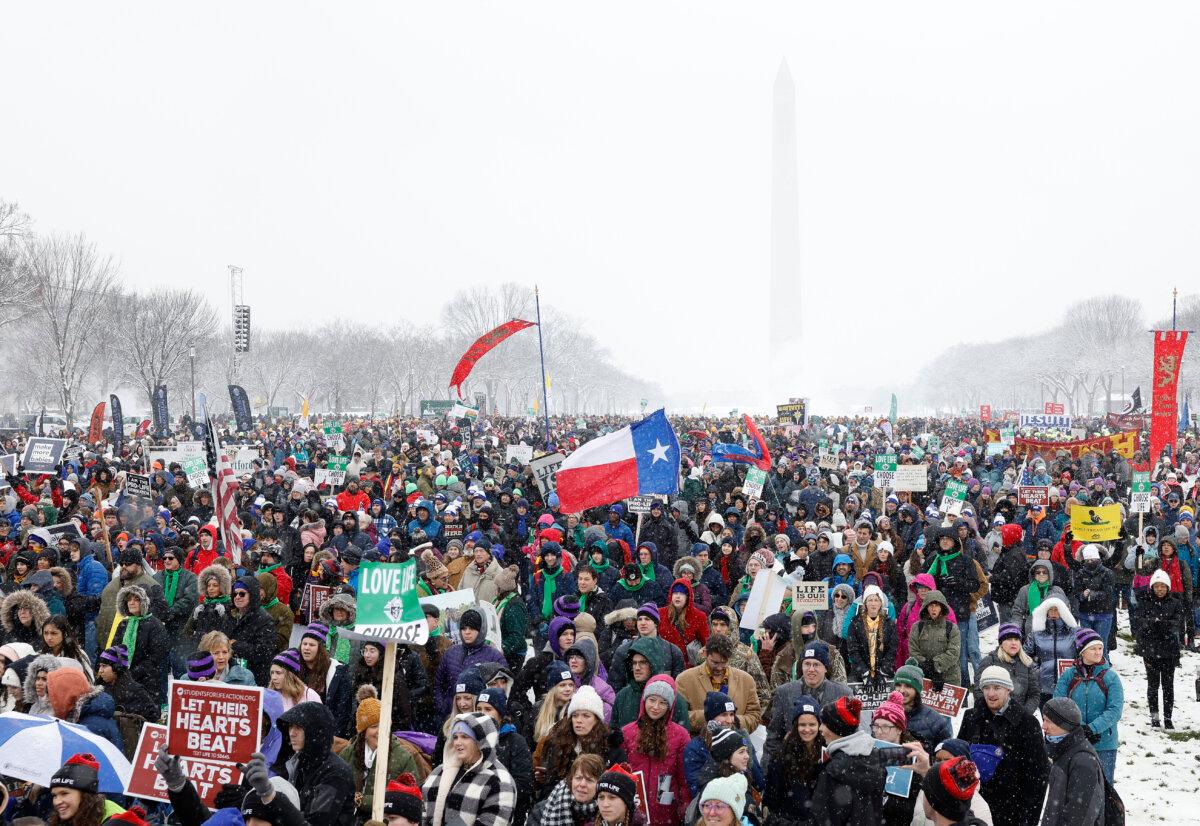
Legislative Battles
Pro-choice advocates, meanwhile, have insisted on codifying Roe, which pro-life advocates say effectively allowed abortion up until birth. Planned Parenthood, she said, wasn’t appealing to moderates and was instead pushing “extreme” laws.
Similar measures have repeatedly failed in the U.S. Congress, which has also considered what some might see as compromises on the issues. For example, the Senate blocked a 20-week ban pushed by former President Donald Trump in 2018.
A 15-week ban isn’t acceptable for some in the pro-life movement either.
Former Planned Parenthood Director Abby Johnson previously supported abortion but now leads pro-life charities and says she wouldn’t feel comfortable backing any legislation short of a total ban on the procedure.
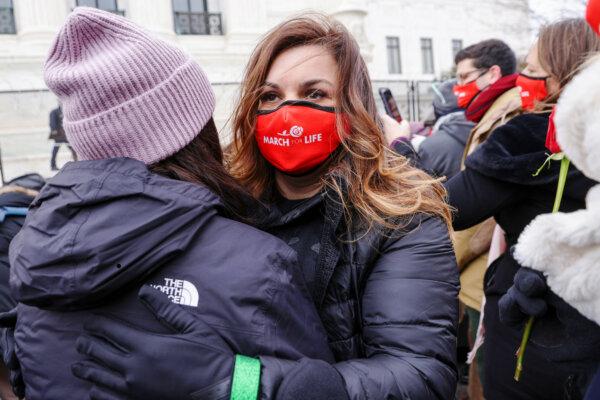
“I guess for me, it is about consistency,” she told The Epoch Times.
“It’s really about fighting for what’s right, not about what’s electable … I would rather lose an election and know that I was fighting for the right thing.”
On exceptions for rape, she said, “I’m just never going to be a person that looks at a child that was conceived in rape and says, you don’t have the same value as a child that was conceived in love.”
White Rose Resistance Manager of Activism A.J. Hurley told The Epoch Times: “As those standing for life in this dark generation, it’s not our job as an organization to tell our legislators what’s practical. Since killing children is unthinkable, it’s our job to push them to do the impossible.”
Punishing Women and Reaching Abolition
Pro-life leaders generally express an interest in eliminating abortion but differ in how to achieve that—both in terms of political strategy and enforcement mechanisms.
It reignited a discussion after President Trump said during the 2016 campaign that women should face “some form of punishment for abortion.”
Many pro-life activists, however, have pushed back on penalizing women. Mr. Koski, Mr. Abreu, and Mr. Johnson told The Epoch Times that they opposed institutional punishment of women.
“We all make mistakes, we’ve all sinned,” Mr. Koski said. “But I think that the punishment that they feel will come from within themselves.”
Ms. Lee said she favored punishment but raised a common objection when she noted she would exempt women coerced into abortions.
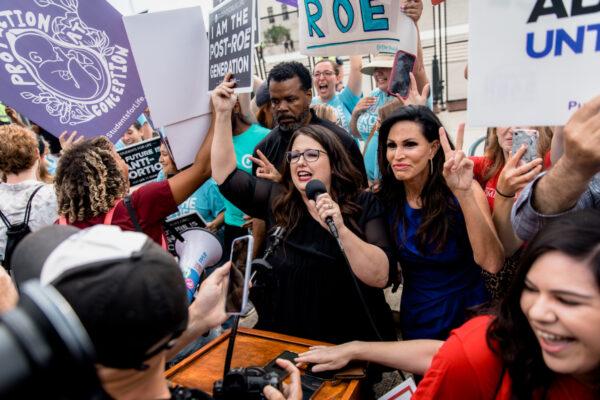
Ms. Hawkins opposed punishment as did Ms. Foster, who compared it to punishing a “wolf who chews off their own paw to escape the trap—as they may view it; for grasping out to the closest life raft, even if that life raft comes with some dreadful consequences.”
“We’re talking about a desperate situation,” she said.
While many, but not all, pro-life organizations have opposed punishment, sympathy is within the movement.
Ben Zeisloft, editor at The Republic Sentinel, has indicated that punishing women is necessary for effectively ending abortion and achieving justice for unborn children.
“There are presently laws in all fifty states preventing women from facing any form of prosecution for the murder of their preborn babies … Many mothers use these special murder rights to become their own abortionists, and justice would demand that they should be penalized accordingly.”
Mixed Data on Post-Dobbs Abortions
According to the Guttmacher Institute, 66 abortion facilities across 15 states stopped offering abortions in the 100 days after the Supreme Court overturned Roe. But it’s nearly impossible to track all abortions as many, including self-managed abortions via pill, occur outside of traditional medical settings. Interstate travel also allows, for example, women in Idaho to seek abortions in Washington state.
The pro-choice Society for Family Planning said in October that “in states with total or six-week abortion bans, abortions decreased by nearly 115,000. States where abortion remained legal beyond six weeks saw a cumulative increase of nearly 117,000 abortions in the 12 months following the Dobbs ruling.” SFP’s reporting, which didn’t count self-managed abortions, said that the national average for abortions actually increased from 82,115 abortions per month in the two months before Dobbs to 82,298 per month after the decision.
It’s unclear, though, whether all of the abortions in pro-life states like Texas merely relocated to pro-choice states like New Mexico.
The researchers added: “Although thousands of Texas residents were able to obtain abortions in another state—and overcame numerous emotional, logistic, and financial hardships to do so, out-of-state abortions did not fully offset the overall decrease in facility-based abortions in the post–SB 8 period. This decrease in facility-based abortion care suggests that many Texas residents continued their pregnancies, traveled beyond a neighboring state, or self-managed their abortion.”
These numbers could of course change as state legislative battles play out in the years following Dobbs and neighboring states’ bans make it difficult, if not impossible, for women to obtain abortions in pro-choice states before exceeding their states’ legal timeframes.
Original News Source Link – Epoch Times
Running For Office? Conservative Campaign Consulting – Election Day Strategies!

